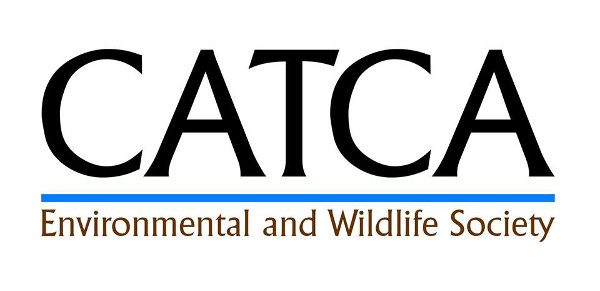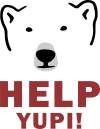

CATCA at the World Trade Center
CATCA got a meeting at the WTO last week in Geneve, Switzerland
Since the begining I knew it would be a challenge for me to have this meeting, since I am not an international and European Union trade expert, so I had less than two weeks to prepare myself and study about the WTO procedures in settling disputes and to study the case of Norway-Canada Vs. the EU at the WTO.
The WTO has a priority in not passing judgements, but to settle disputes through consultations, so that means that I wasn't going to be able to do much lobbying for the seals there.
When I went to the meeting, the person who received me was a Councellor (a Spanish woman), which made things much easier. She had made a list of how the WTO works, how they reach decisions and she was surprised when she realized I had already knowledge about that.
I had a list of questions, but before I could ask anything, she emphasized that the WTO could not express their own opinions on this case and that she could only answer what is disclosed to the general public. After agreing to that, I started to ask about the case.
This is the information I got:
On 11th February 2011, Canada requested the establishment of a panel. At its meeting on 24th February 2011, the Dispute Settlement Body deferred the establishment of a panel.
At its meeting on 25th March 2011, the Dispute Settlement Body established that China,Colombia, Iceland, Japan, Mexico, Norway and the United States reserved their third party rights.
So far the Dispute Settlement Body have not established a panel for this case when I went to the meeting, but on the news it mentioned that just after my meeting at the WTO, the DSB stablished a panel: "The World Trade Organization said April 21st that a single arbitration panel will hear two separate complaints from Norway and Canada about the European Union's 2009 import ban on seal products.
"A panel has been established," said a WTO spokeswoman, referring to a panel of arbitrators".
I will contact the WTO on Monday to confirm this, because this Councellor explained me that it could take two months to decide it.
Few weeks ago it was on the Canadian media that Iceland is going to join Canada and Norway for the seal ban challenge, but when I asked about it, this Councellor was surprised and she checked on her database about it, but could not find anything about Iceland joining this case.
Anyhow, if Iceland joins this case, most probably that country will be added to the already Norway-Canada Case and be treated with the same panel of experts.
Iceland had a request to join consultations requested to the WTO by Canada in November 2009. Canada also had a request to join consultations requested to the WTO by Norway in October 2010.
Canada and Norway agreed with the EU to hold consultations on December 2009 and so this request was for supplementary consultations.
This is the summary of the discusions up to few weeks ago:
Summary of the dispute to date
Up-to-date at 28 March 2011
Consultations
Complaint by Canada DS400
On 2 November 2009, Canada requested consultations with the European Communities concerning Regulation (EC) No. 1007/2009 of the European Parliament and of the EC Council of 16 September 2009 on trade in seal products, and subsequent related measures. According to Canada, the regulation in question prohibits the importation and the placing on the EC market of all seal products.
Canada claims that the above measures are inconsistent with the obligations of the European Communities under Article 2.1 and 2.2 of the TBT Agreement; Articles I:1, III:4 and XI:1 of the GATT 1994 and Article 4.2 of the Agriculture Agreement.
On 16 November 2009, Iceland requested to join the consultations.
On 18 October 2010, Canada requested supplementary consultations with the European Union to take into account that, on 17 August 2010, the European Commission published Commission Regulation (EU) No. 737/2010, which lays down detailed rules for the implementation of Regulation (EC) No. 1007/2009 of the European Parliament and of the Council on trade in seal products ("implementing measure"). In addition, Canada further stated that it may also wish to consult further on matters pertaining to Regulation EC No. 1007/2009 that were previously raised at the consultations held on 15 December 2009 or that have since arisen as a result of the implementing measure or otherwise.
Canada claims that the "implementing measure", either in itself or in combination with Regulation EC No. 1007/2009, is inconsistent with Articles 2.1, 2.2, 5.1, 5.2, 5.4, 5.6, 6.1, 6.2, 7.1, 7.2, 7.4, 7.5, 8.1 and 8.2 of the TBT Agreement; Articles I:1, III:4 and XI:1 of the GATT 1994 and Article 4.2 of the Agriculture Agreement.
On 29 October 2010, Norway requested to
join the supplementary consultations.
I had one hour for asking questions and listening to this Councellor replies, but I could not get many of my questions answered about the WTO opinions about the case, because of the WTO policy to remain as neutral as possible, but I finally managed to lobby about the seal hunt and why the seal hunt can't be done in a humane way in Canada. Also spoke about the infractions and violations to the Marine Mammals Act taking place on the ice, and how the DFO authorities nor Coast Guard are there to stop it. Also spoke about the numbers of the sealers and seals taken on the last years, the pelt prices going down, emphazising that there is no market for the seal hunt, so it is senseless to spend 10 million dollars from our tax money on this case, because the seal hunt is a business that is almost dead and it is just done for all the federal government politics in the Maritime provinces.
To lobby there is not easy, so I had to be fast and efficient doing it "casually".
Here below I will explain how the WTO works and the procedure:
Settling disputes is the responsibility of the
Dispute Settlement Body (which is the General
Council), which consists of all WTO members. The
Dispute Settlement Body has the sole authority to
establish panels of experts to consider the case, and
to accept or reject the panel's findings or the
results of an appeal. It monitors the implementation
of the rulings and recommendations, and has the power
to authorize retaliation when a country does not
comply with a ruling.
| 60 days | Consultations, mediation, etc |
| 45 days | Panel set up and panellists appointed |
| 6 months | Final panel report to parties |
| 3 weeks | Final panel report to WTO members |
| 60 days | Dispute Settlement Body adopts report (if no appeal) |
| Total = 1 year | (without appeal) |
| 60-90 days | Appeals report |
| 30 days | Dispute Settlement Body adopts appeals report |
| Total = 1y 3m | (with appeal) |
Most of the procedure resembles a court or tribunal, and the preferred solution is for the countries concerned to discuss their problems and settle the dispute by themselves. The first stage is therefore consultations between the governments concerned. Even when the case has progressed to other stages, consultation and mediation are still always possible.
So, this whole process may take 1 year or a bit more.
Ericka Ceballos
Founder and President
Campaigns Against the Cruelty to Animals
ericka@catcahelpanimals.org
www.catcahelpanimals.org
A big THANK YOU to all the people who kindly donated to help me pay back for the expenses of this trip.
I am still short of money to pay back (for the air
fare for Geneve) to my colleagues here who kindly
lent me the money. If you would like to contribute
with a donation to pay off this debt or/and to
support our projects for the conservation of the
African elephants, exposing the internet trade of
animals, our project to protect primates from been
sold as pets, against whaling, to protect polar
bears, so on, please send your donation to Paypal to:
n-o-c-ek@wp.pl
(Name: Andrzej Kepel, in Poland, who is my colleague
and right hand for my CATCA campaigns in Europe.)
If you prefer, you can send also a cheque to Ericka Ceballos:
P.O. Box 16021
617 Belmont Street
New Westminster BC V3M-6W6
Canada
We can't do our high end lobbying to help the animals without you!
www.catcahelpanimals.org
Check all the information, news, alerts and things
you can do to help animals in English, Swedish,
French and Spanish
You can help to keep us doing this high level personal and active lobbying!
Help Yupi

WAD

Ericka Ceballos is the proud Canadian Ambassador of World Animal Day. Click on the WAD logo above to check for the events that we will hold to celebrate the animals in Canada.
AD-AV Award!

Click to view larger
Campaigns Against the Cruelty to Animals


Follow us on Twitter!
Click on the button link above for important animal news, events and alerts.
Contact Info
Ericka
PO Box 16021
617 Belmont Street
New Westminster
British Columbia
V3M 6W6
Canada
Email Us!